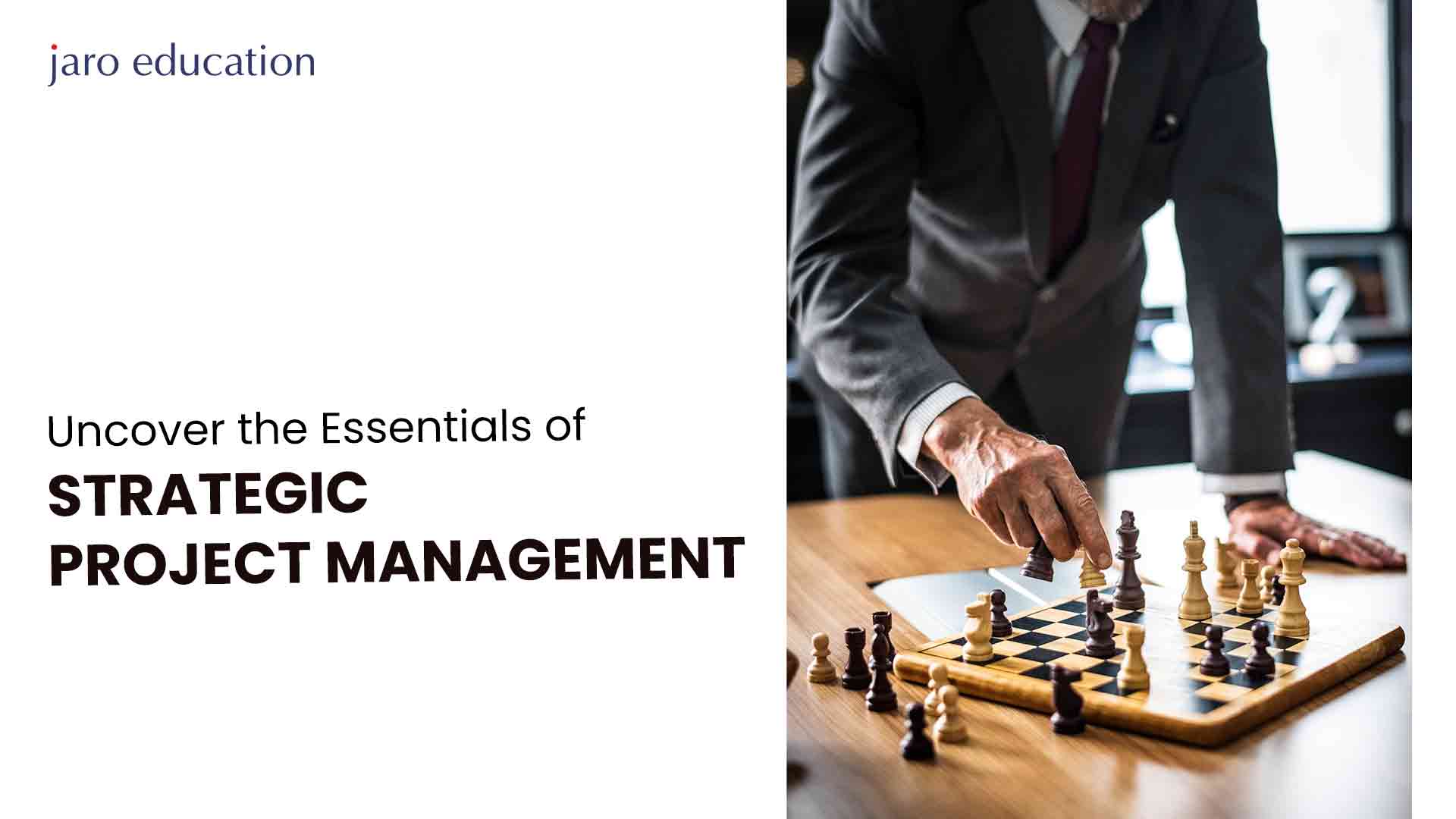
Discover the Essentials of Strategic Project Management
Table Of Content
What is the Scope of Strategic Project Management?
What are the Roles and Responsibilities of a Strategic Project Manager?
Strategic Project Management: Benefits
How to Build a Strategic Project Management Process?
What are EMPO and PMO in Project Management?
What are the Similarities and Dissimilarities of Strategic Project Management?
Conclusion
What is the Scope of Strategic Project Management?
Depending on the details provided in the planning of a project, the scope of strategic project management can be narrow or broad. Project managers play a crucial role in managing projects at every level. It is their prime responsibility to define goals, allocate resources and set budget constraints for the project.
What are the Roles and Responsibilities of a Strategic Project Manager?
A strategic project manager must be able to:
- Evaluate internal and external risks revolving around a project
- Identify growth opportunities; establish priorities based on the opportunities
- Manage stakeholders as long the project is on
- Involve all stakeholders and set a communication plan
- Track progress regularly
- Ensure compliance with safety regulations
- Evaluate results against established criteria, resolve problems with the help of root cause analysis (RCA).
- Help others in solving problems when important clients communicate.
Strategic Project Management: Benefits
The following are some of the top benefits of strategic project management:
A robust strategy plan aids in the creation of precise and well-defined future roadmaps that entice stakeholders to invest in the organisation.
Boosts employee engagement
Strategic project management procedures allow leaders to develop a clear vision and objective that will drive the team to produce the best results, having a common goal.
Improves decision-making
To learn about the present situation and what has to be done in the future, businesses must have clarity and immediate access to the workplace status of all company processes. With such strategic directives, business leaders may examine their abilities shortcomings and accordingly make data-driven strategic choices.
Helps with effective recruitment
Companies can only analyse the competence gap and make the correct recruiting decisions if they have a thorough understanding of the company’s demands. Strategic management recognises those gaps and resolves them via effective recruitment.
How to Build a Strategic Project Management Process?
Project managers need to employ the skill of prioritisation in both strategic and conventional project management. The steps include:
Understand the goals of the organisation
In strategic project management, project managers should always keep the bigger picture in mind while setting strategies for project planning and management.
Simplify decision-making process
Project managers should define the project, collect data about the project and resources, gather evaluating options and take action, to make the decision-making process simple.
Make contributions to the project strategy
A project manager, irrespective of having more experience or less experience, must contribute to project strategy by boosting the morale of the team, or by implementing new methods to complete a project on time.
Improve priority management
If something needs to be delivered on an urgent basis, it is a project manager’s responsibility to get his team(s) started on that first.
Allot a budget to every project
Project managers need to create a budget strategy for every project where budget allocation must be discussed in detail.
Review the strategic process of the project
Project management teams must continually analyse, evaluate and change the plan if needed to gain better results. Moreover, they should not see strategy as a constant phenomenon.

*wrenchsp.com
What are EMPO and PMO in Project Management?
EMPO, or enterprise Project Management Office, is a centralised office that interacts with senior management and company executives to assist them in selecting projects based on corporate goals, vision and resource availability.
Whereas, PMO stands for Project Management Office. In this department, professionals create and manage the standards and best practices utilised to organise and concentrate the company’s different projects. PMOs also oversee project timetables and performance to ensure the project team fulfils deadlines while staying under budget. A PMO’s level of control over projects in its area might vary.
What are the Similarities and Dissimilarities of Strategic Project Management?
In the context of EPMO VS PMO, project managers should know their similarities and differences.
Similarities
- Both PMO and EPMO assess the risks associated with the project.
- EPMO and PMO track development towards the completion of a project
- PMO and EPMO create and implement methods that reduce workload and streamline the project management process.
- They both support team members with the resources and tools they require to complete tasks
- It is the target of both PMO and EPMO to finish a project on time within the estimated budget
- Both EPMO and PMO ensure that team members’ work aligns with the organisation’s vision and goals
Differences
Companies determine which sort of project management office to install depending on the organisation’s particular needs and what they want from the project management team. The differences between EPMO and PMO are seen in their organisational duties.
Conclusion
Strategic project management has become the backbone of the broader aspect of project management. Organisations and companies now know that they cannot stay in business if they don’t close the project within deadlines. For that, it is every project manager’s and their team’s responsibility to define the project, make a plan of action, get resources, discuss budget, set a deadline and work accordingly. Also, it is essential to review their strategies from time to time.
So, if you are willing to gain mastery in advanced of project management, IIM Mumbai is offering an Executive Certificate in Advanced Project Management and Analytics. This is a 7-8 month programme that provides project management professionals with tools and techniques to create effective project management strategies and will help you deliver projects within quality, cost and time constraints efficiently.


